D H Lawrence [Lawrence - The First Lady Chatterley’s Lover
Here you can read online D H Lawrence [Lawrence - The First Lady Chatterley’s Lover full text of the book (entire story) in english for free. Download pdf and epub, get meaning, cover and reviews about this ebook. year: 2015, publisher: Blackthorn Press, genre: Prose. Description of the work, (preface) as well as reviews are available. Best literature library LitArk.com created for fans of good reading and offers a wide selection of genres:
Romance novel
Science fiction
Adventure
Detective
Science
History
Home and family
Prose
Art
Politics
Computer
Non-fiction
Religion
Business
Children
Humor
Choose a favorite category and find really read worthwhile books. Enjoy immersion in the world of imagination, feel the emotions of the characters or learn something new for yourself, make an fascinating discovery.
- Book:The First Lady Chatterley’s Lover
- Author:
- Publisher:Blackthorn Press
- Genre:
- Year:2015
- Rating:3 / 5
- Favourites:Add to favourites
- Your mark:
- 60
- 1
- 2
- 3
- 4
- 5
The First Lady Chatterley’s Lover: summary, description and annotation
We offer to read an annotation, description, summary or preface (depends on what the author of the book "The First Lady Chatterley’s Lover" wrote himself). If you haven't found the necessary information about the book — write in the comments, we will try to find it.
D H Lawrence [Lawrence: author's other books
Who wrote The First Lady Chatterley’s Lover? Find out the surname, the name of the author of the book and a list of all author's works by series.
The First Lady Chatterley’s Lover — read online for free the complete book (whole text) full work
Below is the text of the book, divided by pages. System saving the place of the last page read, allows you to conveniently read the book "The First Lady Chatterley’s Lover" online for free, without having to search again every time where you left off. Put a bookmark, and you can go to the page where you finished reading at any time.
Font size:
Interval:
Bookmark:
THE FIRST LADY CHATTERLEYS LOVER
D H LAWRENCE
BLACKTHORN PRESS
Blackthorn Press, Blackthorn House
Middleton Rd, Pickering YO18 8AL
United Kingdom
All rights reserved. No part of this publication may be reproduced, stored in a retrieval system or transmitted, in any form or by any means, electronic, mechanical, photocopying, recording, or otherwise, without the prior permission of the Blackthorn Press.
2015
www.blackthornpress.com
CONTENTS
INTRODUCTION
Lawrence wrote three drafts of Lady Chatterleys Lover between 1926 and 1928: The First Lady Chatterley, John Thomas and Lady Jane and the final version, Lady Chatterleys Lover. All three books are published as ebooks by the Blackthorn Press.
Although all three books have the same story line of an aristocratic woman falling in love with a working class man, there are differences in their tone and sensibilities. Many critics have preferred this, the first version and Geoffrey Strickland, writing in Encounter , in 1971 concluded his article by saying, Why Lawrence altered the novel three times is a matter mainly for speculation. But that he altered it disastrously is, in my view, beyond question. Strickland was of his time and for the modern reader, the last version with its more frank exploration of the sexual attraction of the two lovers is perhaps more rewarding. This, the first version, with its muted sexual scenes, lacks the reality and passion of the later versions. All three versions are now available in ebook format from the Blackthorn Press and the reader can now compare and decide.
Editors note: Lawrences original manuscript was not divided into chapters and this format has been maintained in this edition.
THE FIRST LADY CHATTERLEYS LOVER
Ours is essentially a tragic age but we refuse emphatically to be tragic about it.
This was Constance Chatterleys position. The war landed her in a dreadful situation, and she was determined not to make a tragedy out of it.
She married Clifford Chatterley in 1917when he was home on leave. They had a month of honeymoon, and he went back to France. In 1918 he was very badly wounded, brought home a wreck. She was twenty-three years old.
After two years, he was restored to comparative health. But the lower part of his body was paralysed for ever. He could wheel himself about in a wheeled chair, and he had a little motor attached to a bath chair, so that he could even make excursions in the grounds at home.
Clifford had suffered so much that the capacity for suffering had to some extent left him. He remained strange and bright and cheerful, with his ruddy, quite handsome face, and his bright, haunted blue eyes. He had so nearly lost life that what remained to him seemed to him precious. And he had been so much hurt, that something inside him had hardened and could feel no more.
Constance, his wife, was a ruddy, country-looking girl, with soft brown hair and sturdy body and a great deal of rather clumsy vitality. She had big, wondering blue eyes and a slow, soft voice, and seemed a real quiet maiden.
As a matter of fact, she was one of those very modern, brooding women who ponder all the time persistently and laboriously. She had been educated partly in Germany, in Dresden; indeed, she had been hurried home when the war broke out. And though it filled her now with bitter, heavy irony to think of it, now that Germany, the German guns at least, had ruined her life, yet she had been most happy in Dresden. Or perhaps not happy but thrilled. She had been profoundly thrilled, by the life, by the music, and by the Germanic, abstract talk, the sort of philosophising. The endless talk about things had thrilled her soul. The philosophy students, the political economy students, the young professors, literary or ethnological, classic or scientific, how they had talked! and how she had answered them back! and how they had listened! and how she had listened to them because they listened to her!
Came the war, and she had to feel bitter about it all. But Clifford, who was an old friend and a Cambridge intellect, was by no means a narrow patriot. He fought for his country, but he sympathised entirely with the young intelligent Germans who were, like himself, caught up in the huge machine that they hated. Clifford would still read Hauptmann or Rainer Maria Rilke aloud to Constance when he was home on leave. Which pleased her very much. She felt she wanted to be above the war and, at least, above the war patriotism which exasperated her so much.
But by the time the Untergang des Abendlands appeared, Clifford was a smashed man, and her life was smashed. She was young and remorselessly, almost crudely healthy. Under the blow she just went silent. And she remained silent, pondering, pondering with an endless unresolved vagueness.
They removed to Wragby in 1920.It was Cliffords home. His father had died, and he was now a baronet. Wragby Hall was a low, long old house, rather dismal, in a very fine park, in the midst of newly developed colliery districts. You could hear the chuff of winding engines, and the rattle of the sifting screens, and you could smell the sulphur of burning pit-hills when the wind blew in a certain direction over the park.
Constance was now Lady Chatterley, with a crippled husband, a dreary old house in a defaced countryside, and a rather inadequate income. She determined to make the best of it. She could work and read and ponder, and she was the lonely, absolute mistress of the establishment. It pleased her to manage carefully, to live within their income. It pleased her to entertain anyone, anyone who would interest Clifford. But he preferred to be alone. She went on from day to day, from day to day, in a strange plodding way. And she had a peculiar, comely beauty of her own, healthy and quiet and shy-seeming, but really withheld. And strangely isolated in herself, being unquestioned mistress in her own surroundings!
Clifford did not weigh upon her. He occupied himself reading, writing, painting, pulling himself round the fine old gardens in his chair, or slowly, softly trundling across the park into the wood in his motor chair. He gave orders to the gardeners and the wood-cutters and the gamekeeper. He watched over his small estate. Sometimes, in the autumn, he would go in his chair very slowly into the wood and wait for a shot at a pheasant. And sometimes, when he had great courage, he would take his paints and work at a small picture. He had once had a passion for painting, though he did little now. But he seemed almost happy, more happy than before his catastrophe.
Only occasionally he was anxious about Constance. She was very good to him, she loved him in her peculiar, neutral way. And he, of course, felt he could not live without her. They were true companions, as in the old days before they married.
But, of course, there was the tragedy that had fallen upon them! He could never be a husband to her. She lived with him like a married nun, a sister of Christ. It was more than that, too. For of course they had had a month of real marriage. And Clifford knew that in her nature was a heavy, craving physical desire. He knew.
He himself could not brood. The instinct of self-preservation was so strong in him, he could only contemplate the thrill and the pleasure of life or else fall into apathy. He would have days of apathy, which swallowed up what would else have been bitterness and anguish. Then the thrill of life returned. Then he could go in his motor chair into the woods and, if he remained silent, see the squirrels gathering nuts or a hedgehog nosing among dead leaves. Each time it seemed like something he had captured in the teeth of fate. He felt a peculiar triumph over doom and death, even over life itself. Only he practically never went outside the park gates. He could not bear the miners to stare at him with commiseration. He did not mind his own gardeners and wood-men and gamekeeper so much. He paid them.
Font size:
Interval:
Bookmark:
Similar books «The First Lady Chatterley’s Lover»
Look at similar books to The First Lady Chatterley’s Lover. We have selected literature similar in name and meaning in the hope of providing readers with more options to find new, interesting, not yet read works.
Discussion, reviews of the book The First Lady Chatterley’s Lover and just readers' own opinions. Leave your comments, write what you think about the work, its meaning or the main characters. Specify what exactly you liked and what you didn't like, and why you think so.

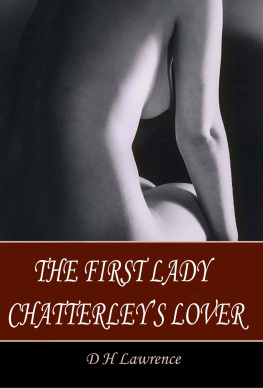

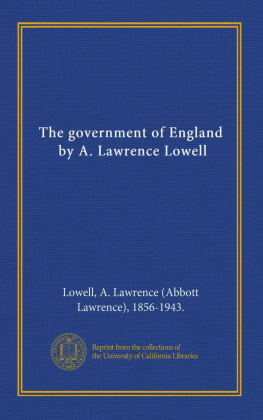
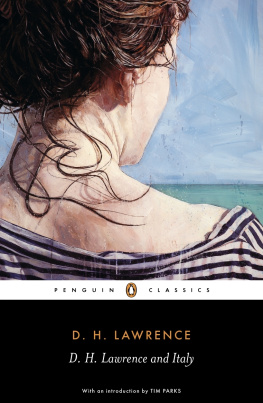
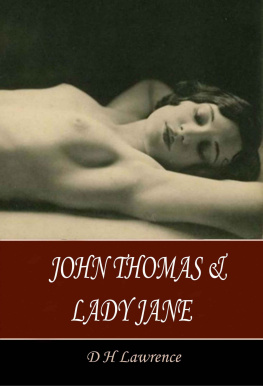

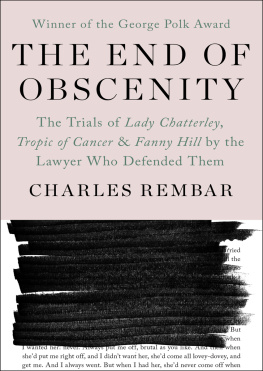
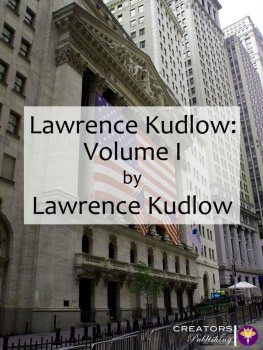
![D. H. Lawrence [Lawrence - Sons and Lovers [Annotated Version]](/uploads/posts/book/61295/thumbs/d-h-lawrence-lawrence-sons-and-lovers.jpg)